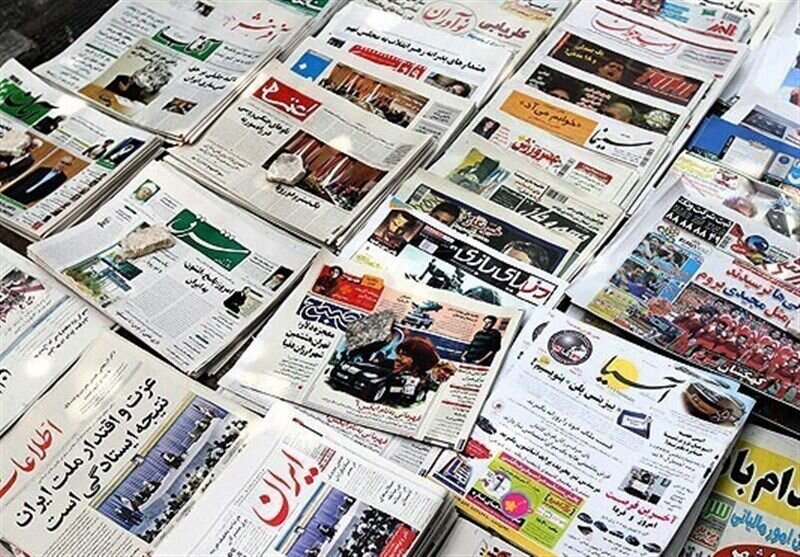Condition for ending the war is destruction of Israel, not cessation of attacks

Kayhan discussed the full-scale war between Iran and Israel in an article and wrote: The war that has been started in West Asia these days is more than just a normal military conflict. A battle that will not end with a ceasefire, but only with the complete collapse of the sinister and fake structure of the Zionist regime.
Now, Islamic Iran must use this historic opportunity with all its might to cleanse the region of Zionism. The Zionists, at the height of their stupidity, initiated a war that they thought would take Iran by surprise at the very beginning. The night attack on Iran's military, nuclear, and defense centers was supposed to be the beginning of a "big blow." The Israelis thought that with a few blind air strikes they could bring Tehran to its knees, unaware that Tehran is neither Kyiv nor Tripoli! Today, powerful Iran has not only imposed terrible situation on Tel Aviv and Haifa but is also just showing part of its strategic power. The enemy, who had come to finish the job in his naive imagination, is now waiting with deep wounds for the final blow. The condition for ending the war is only one thing: the destruction of Israel. That's it.
Shargh: Consequences of withdrawing from the NPT
Shargh devoted its headline to the consequences of withdrawing from the NPT and wrote: Countries can withdraw from the NPT through Article 10 of the treaty, but this action has far-reaching consequences and implications that cannot be easily ignored. Countries that withdraw from the treaty will face severe international pressure, which may include extensive economic and political sanctions. In addition, the cessation of cooperation and technology transfer in the field of nuclear energy will be completely stopped, which could severely undermine the country's nuclear projects and programs. On the other side, withdrawing from the NPT usually leads to international accusations of trying to obtain nuclear weapons, and a global consensus may be formed against the withdrawing country, which could pose serious challenges in the diplomatic and security arenas. For this reason, while withdrawing from this treaty is the right of every country, in practice, it is a very sensitive and costly step that must be taken carefully and considering all security, political, and economic dimensions.
Etemad: Balance in favor of Iran
Etemad analyzed Iran’s missile attack on Israel and said: Since Friday night and Saturday afternoon, when the second and third stages of Operation True Promise III were carried out against Israel, significant developments have taken place between Iran and the United States. These developments, from the view of experts and analysts, have no meaning other than changing the balance in favor of Iran and causing confusion among Israeli officials. On the battlefield, the more the balance changed in favor of Iran, the louder the voices of the United States and European countries about the need to return to the negotiating table rose to the sky. Trump, who had previously spoken of the necessity of an Israeli attack on Iran and considered it necessary, made a significant change in position yesterday (Monday) and announced: “Iran and Israel must reach an agreement and they will!” Moreover, the illusion by Netanyahu and Trump that strikes on Iran would lead to popular protests in the Islamic Republic, happened in Israel. Given the current circumstances, the world's wise people must prevent such criminal behavior as soon as possible and pave the way for Iran and the United States to return to the negotiating table.
Sobh-e-No: Everything worked out in Iran’s favor
In a commentary, Sobh-e-No discussed the formation of a new political-moral coalition against Israel and wrote: Following the Zionist regime’s military aggression against the territory of the Islamic Republic of Iran, a wave of condemnations poured in from regional countries and the world. These reactions indicated the increasing isolation of the Israeli regime and deep international concerns over the clear violation of Iran’s national sovereignty. An analysis of the reactions shows that Israel’s aggression against Iran has led to a kind of new regional and international consensus against Tel Aviv’s military adventures. Contrary to calculations by some Israeli officials, the attack not only did not weaken support for Iran, but many countries defended the principles of sovereignty, international law, and Islamic solidarity. These reactions indicate that although Iran is under severe propaganda pressure and sanctions from the West, it has maintained and even promoted its regional and international credibility through resistance against Israel. At the same time, regional countries, realizing the risks of the spread of the crisis, have redefined their foreign policy.
Leave a Comment